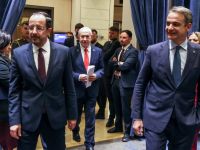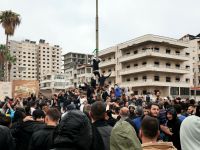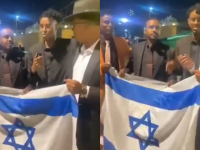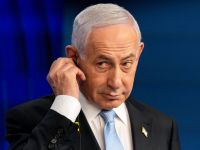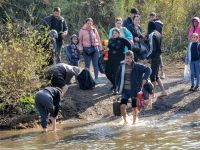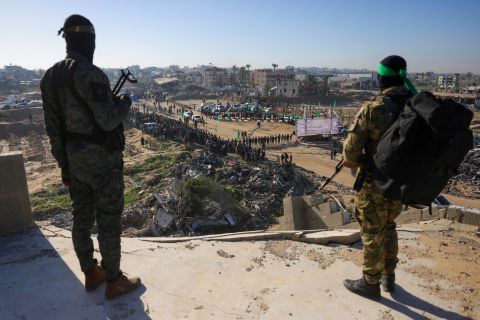Life appears to be back to normal in Paris after the November 13 attacks but some incidents show that many people remain edgy. And now European football comes to town for the Euro 2016 group draw.
Heads turn as a siren sounds and the fire brigade speed down the Boulevard Gouvion-Saint-Cyr and past the Palais des Congres where Saturday's Euro 2016 draw will take place.
An hour later on Thursday there is a sudden commotion and shouting match on the Metro 8 platform at Franklin D Roosevelt station.
Regular-looking men reveal red armbands out of nowhere, identifying themselves as police. Two of the officers do not mince their words as they argue with three youths and another man on the platform, while another officer looks under one carriage of the east-bound train, probably in search of suspicious objects.
A few stops onwards, at the Place de la Republique, the mount of the national monument is still a sea of flowers, candles, drawings and flags. Dozens of locals and tourists look and read in silence, interrupted only by a sob or a clicking camera.
But 30 yards on the clatter of skateboards on concrete gives a reminder that life is going on almost a month after the November 13 attacks by Islamic militants which left 130 people dead.
The packed metro 8 also continued on soon after the incident, and tourists in front of Notre Dame cathedral seem to make nothing of the heavily armed military forces guarding this landmark and others.
The attacks, some 11 months after that against the Charlie Hebdo magazine, have left France scarred and edgy but at the same time defiant amid the ongoing state of emergency.
"To rock'n roll" says the writing on a paper heart hung next to a cut out paper guitar on a string above more flowers, wreaths and candles outside the Bataclan club where most of the victims lost their lives.
And a young girl tortures her electric guitar to the sound of punk rock at the Chatelet metro station; while platters of fresh oysters make their way to hungry diners in packed restaurants from racks outside in the chilly Paris air.
The militants attacked the French way of life by firing into restaurants and a concert hall, but also football as three suicide bombers blew themselves up outside the Stade de France on that fateful night.
At least one of them is said to have had a ticket to the game France were playing against Germany at the time, with French President Francois Hollande in attendance, but he was stopped outside.
As a result, the trip to Paris for the 24-team draw means a whole lot more to the world champion Germans than to the other delegations, and their visit serves the purpose of remembering but also looking forward.
"The return to Paris for the draw will be special for me. I think that I will pay my respects for what happened on November 13 and to the immediate family of those lost," Germany coach Joachim Loew said.
"I hope that our French hosts can return to normality as soon as possible. They are a big and traditional footballing nation. With the Euro draw at the weekend, football will come more into focus again.
"To look ahead, the European Championships are also something to look forward to.
"As with all the participants in Paris, we want to represent our way of life, meaning openness, tolerance, respect, solidarity and freedom. We will not surrender these values."
France never considered cancelling the draw or Euro 2016 even though the event will create plenty of security headaches in and outside the stadiums for the 51 matches in nine cities attended by hundreds of thousands of fans.
"If we put Euro 2016 in doubt we will be bowing to he rules of the terrorists," organizing committee chief Jacques Lambert said right after the attacks.
"We will take the necessary steps so that Euro 2016 takes place with the best possible security measures."




